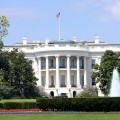 Millennials are expected to outnumber Baby Boomers this year as the nation’s largest living generation, according to newly released population projections by the U.S. Census Bureau.
Millennials are expected to outnumber Baby Boomers this year as the nation’s largest living generation, according to newly released population projections by the U.S. Census Bureau.
Millennials – anyone between the ages of 18 to 34 in 2015 – are estimated to reach 75.3 million, exceeding the projected 74.9 million Baby Boomers, who are 51 to 69 years old. Gen Xers, those who are ages 35 to 50, are expected to outnumber Baby Boomers starting in 2028, with 65 million.
Fueling the Millennials’ growth are waves of young immigrants moving into the country. On the contrary, Baby Boomers are getting older and dying at a faster rate than they are arriving.
The Millennial population is expected to peak in 2036 at 81.1 million, then gradually decline as they age and fewer come to the country, the Census Bureau said.
By 2050 there will be a projected 79.2 million Millennials. Baby Boomers, those associated with the boom in U.S. births following World War II, are expected to dwindle to 16.6 million.
Paying attention to Millennials’ demands and expectations will be critical to businesses moving forward, according to the annual Deloitte Millennial (Generation Y) Survey.
Millennials, who already have emerged as leaders in technology and other industries, will comprise 75% of the global workforce by 2025.
The study, which surveyed more than 7,800 Millennials with college degrees and full-time jobs, found that 70% of Millennials prefer to work independently by digital means rather than in traditionally organized businesses.
The survey showed that many businesses aren’t doing as much as they could to nurture and develop future leaders and advise against counting on the younger employees to bide their time until senior positions arise.
While Millennials applaud businesses for generating jobs and increasing prosperity, they believe companies can do more to address their top areas of concern: resource scarcity, climate change and income equality.
Overall, Millennials want to work for organizations that support innovation. More than three-quarters of those surveyed said that how innovative a company was played a big factor in their decision to work there, but most said their current employer does not encourage them to think creativity.
They cited the top barriers of innovation were management attitude, operational structures and employee skills, attitudes and diversity.
“To attract and retain talent, business needs to show Millennials it is innovative and in tune with their world view,’’ said Barry Salzberg, CEO of Deloitte Touche Tohmatsu Limited.





